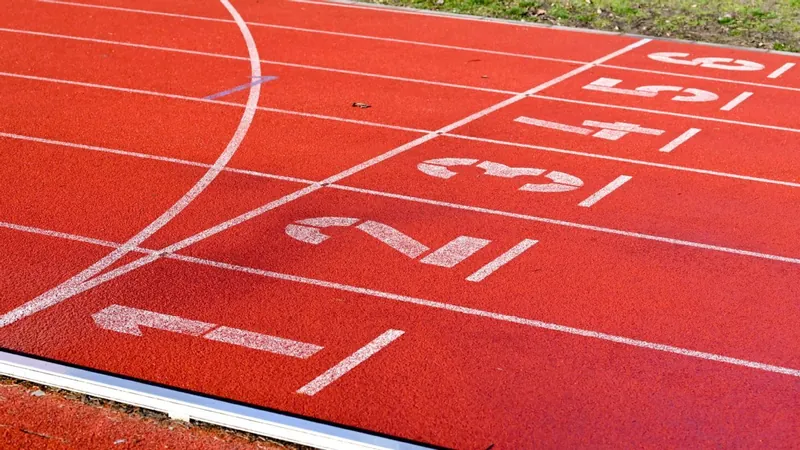
Controversial Genetic Testing for Female Track and Field Athletes Approved by World Athletics
2025-03-25
Author: Ying
Introduction
In a significant move that could reshape the landscape of women’s sports, World Athletics has announced plans to implement genetic testing for female track and field athletes. This decision comes from the organization’s president, Sebastian Coe, who stated that the initiative aims to preserve 'the integrity of competition' within female athletics.
Details of the Genetic Testing Protocol
The new protocols will mandate that athletes competing in the female category undergo a one-time test using cheek swabs or dry blood-spot samples. This testing will check for the presence of a Y chromosome, a key determinant in biological male characteristics. The reintroduction of chromosome testing marks a return to practices that were phased out in the 1990s, reflecting a growing concern over what constitutes fair competition in athletics.
President Sebastian Coe's Remarks
During a press conference following a two-day World Athletics Council meeting in Nanjing, Coe emphasized the necessity of these measures, stating, 'It's critical to not only talk about but to effectively protect women's sports and guarantee its integrity.' This initiative is set against a backdrop of increasing tensions surrounding gender identity and athletic competition, particularly following the organization’s controversial decision earlier this year to ban transgender athletes who transitioned from male to female.
Implementation Timeline and Future Considerations
The timeline for implementing these genetic tests remains uncertain, particularly with the upcoming world championships scheduled for September. Coe noted that the drafting of new regulations is underway, and a testing provider will be confirmed in the coming weeks.
Call for Unified Approach to Transgender Regulations
Additionally, Coe has expressed the need for a more unified approach to handling transgender athlete regulations at the international level, urging the International Olympic Committee to take a decisive leadership role rather than allowing individual sports to make their own rules about athlete eligibility.
Conclusion
This development adds to ongoing debates in sports about fairness, inclusivity, and the identity of athletes. The conversation is intensifying as athletes, organizations, and fans alike grapple with the implications of genetics in competition. As World Athletics navigates these complex issues, many are left wondering how these policies will impact the future of women's sports on a global scale.



 Brasil (PT)
Brasil (PT)
 Canada (EN)
Canada (EN)
 Chile (ES)
Chile (ES)
 Česko (CS)
Česko (CS)
 대한민국 (KO)
대한민국 (KO)
 España (ES)
España (ES)
 France (FR)
France (FR)
 Hong Kong (EN)
Hong Kong (EN)
 Italia (IT)
Italia (IT)
 日本 (JA)
日本 (JA)
 Magyarország (HU)
Magyarország (HU)
 Norge (NO)
Norge (NO)
 Polska (PL)
Polska (PL)
 Schweiz (DE)
Schweiz (DE)
 Singapore (EN)
Singapore (EN)
 Sverige (SV)
Sverige (SV)
 Suomi (FI)
Suomi (FI)
 Türkiye (TR)
Türkiye (TR)
 الإمارات العربية المتحدة (AR)
الإمارات العربية المتحدة (AR)